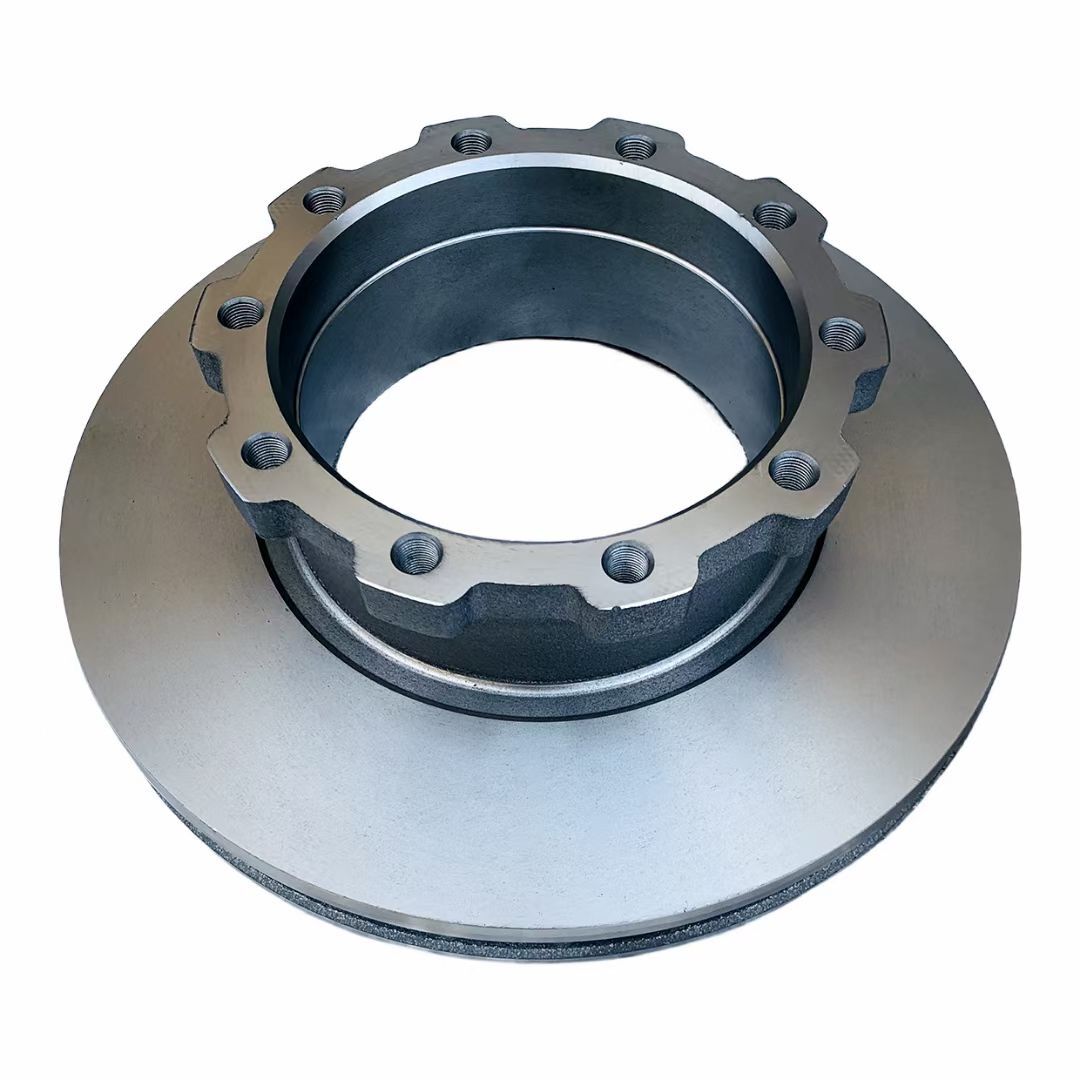
Guide for Appraising Quality in Heavy Duty Truck Parts
In the heavy-duty logistics sector, the purchasing of replacement components has historically been driven by cost. However, fleet performance and safety mandates now demand a shift from price-driven procurement to a comprehensive, quality-appraisal framework. Every component, from a simple seal to a complex transmission, represents a potential point of failure. Therefore, appraising the quality of heavy duty truck parts is not merely a matter of checking brand names; it is a rigorous process that assesses material science, manufacturing integrity, and adherence to global quality standards. This strategic approach minimizes Total Cost of Ownership (TCO) by reducing downtime and catastrophic failures. This article outlines the essential pillars of quality appraisal, detailing the technical and procedural diligence required to secure parts that guarantee operational longevity.
The Three Pillars of Component Quality Appraisal
Effective quality appraisal must move past visual inspection and focus on the fundamental integrity established during the component’s design and manufacturing lifecycle. Quality is built on three inseparable pillars: Material, Design, and Process.

Material Science and Metallurgy
The foundation of durability lies in the raw materials used. For high stress components like axles, brake discs, and bearings, the composition of the metal dictates the component’s resistance to the primary threats of heavy trucking: thermal fatigue and cyclical stress.
- Composition and Purity: High quality components, such as certified brake discs, use specific high carbon alloy steel formulated to withstand extreme temperature cycling without warping or cracking. Appraisers must verify material certification to ensure the metallurgy meets or exceeds OEM specifications, rather than relying on lower-grade, impure steel that sacrifices longevity.
- Hardness and Tempering: Proper heat treatment, or tempering, is essential for components like axles and camshafts. This process dictates the metal’s hardness, toughness, and resistance to impact. An inadequate tempering process, even on correct material, can lead to brittle failure or rapid wear, compromising the structural integrity of the entire assembly.
Design Integrity and Dimensional Precision
A high quality part must be an exact fit and perform its intended function under the maximum expected load without premature wear.
- Dimensional Accuracy: Components like brake drums or control valves must adhere to micro level tolerances to ensure seamless integration and correct function within their assemblies. Incorrect machining can cause immediate issues, such as premature wear on brake shoes, linings & kits, or misalignment that stresses suspension parts.
- Functional Longevity: Quality design includes features that promote longevity, such as superior sealing surfaces on bearings to prevent contamination, or robust housing designs on brake chambers to resist physical damage and corrosion. The design must address the real world environmental threats the component will face.
Manufacturing Process and Consistency
The appraisal of quality must verify that the manufacturing process is consistent and controlled, ensuring every part meets the same standard.
- Tooling and Machining: Subpar manufacturing often uses worn tooling, leading to rough surfaces, incorrect angles, and stress concentration points. High quality truck parts manufacturers maintain strict controls over their machining processes to achieve the smooth finishes and precise geometry required for low friction parts like center supports and slack adjusters.
- Assembly and Testing: For complex assemblies like brake valves or transmissions, the internal assembly process is critical. Quality manufacturers integrate in line testing to ensure functional integrity, confirming things like leak rates in air brakes components or correct solenoid operation before the part leaves the factory floor.
Decoding Quality Through Technical Specifications
Procurement teams must develop the technical expertise to demand and interpret detailed specification sheets, moving past generic part descriptions to measurable performance data.
Understanding Component Load Ratings and Fatigue Life
The primary indicator of a part’s durability is its load rating and predicted fatigue life under cyclical stress.
- Static and Dynamic Load Capacity: For structural components, such as axles and trailer parts, the dynamic load capacity must be confirmed to handle not just the maximum payload, but the torsional and lateral forces encountered on the road. A quality appraisal involves verifying that the part is rated for the fleet's specific operational environment.
- Cyclical Endurance: Fatigue life is the number of stress cycles a part can endure before failure. This is especially relevant for air springs and brake discs, which undergo repeated, intense pressure and thermal cycles. High quality parts are often subjected to accelerated life testing to validate their endurance far beyond minimum industry requirements.
Tolerance Mapping and Surface Finish Analysis
Dimensional specifications are paramount for preventing early wear and system malfunction.
- Critical Tolerance Checks: Key dimensions, such as the runout tolerance on a brake drum or the bore size of a bearing race, directly affect installation and performance. A supplier should be able to provide detailed Quality Control reports validating these critical dimensions, confirming they meet the OEM drawing specifications.
- Surface Finish: The smoothness of the surface, particularly on mating or rotating components, is essential for friction management and seal performance. Poor surface finish on a camshaft or clutch component will accelerate wear on seals and interfacing parts, leading to early failure. Quality appraisal includes verifying the surface finish metrics.
The Role of Certification and Supply Chain Diligence
Formal quality certifications provide an independent validation of a manufacturer's commitment to consistent, high standards. Choosing a truck parts supplier based on these certifications mitigates supply chain risk.
The ISO/TS16949 Standard
The ISO/TS16949 certification is the gold standard for quality management systems in the automotive industry. It is a rigorous process that goes far beyond basic ISO standards.
- Process Control: This standard dictates mandatory process control for automotive suppliers, focusing heavily on defect prevention, reduction of variation, and waste minimization. A supplier holding this certification demonstrates that the creation of every brake valve or control valve follows strictly defined, high standard protocols.
- Continuous Improvement: Compliance with ISO/TS16949 requires a commitment to continuous improvement, meaning the manufacturer is constantly working to refine processes and increase product quality and reliability. This provides assurance that the product is consistently excellent, regardless of the production batch.
Auditing the Truck Parts Supplier
Proactive fleet management includes due diligence on the source of their all trucks parts.
- Traceability and Batch Control: High quality suppliers implement robust systems for traceability, allowing them to track the raw materials, production date, and inspection results for every component, such as an engine part or turbo charger. This is vital for recall management and fault analysis.
- Warranty and Support: The warranty provided by the heavy duty truck parts manufacturers reflects their confidence in the product quality. A strong warranty, combined with readily available technical support and engineering assistance, provides an invaluable layer of risk mitigation for the fleet operator.
All Truck Parts: Your OEM and Aftermarket Sourcing Partner
All Truck Parts Limited (ATP) operates as a premier global supplier and manufacturer of truck trailer parts, leveraging more than two decades of industry expertise. Recognized as a pivotal heavy duty truck parts manufacturer, ATP prioritizes a culture of stringent manufacturing quality, which directly contributes to enhanced road safety across its product lines. The company strategically serves both OEM and Aftermarket clients, delivering engineered solutions that reflect factory direct pricing and are secured by a comprehensive 12 month warranty. ATP’s dedication to quality assurance is substantiated by its ISO/TS16949 certification, maintained through continuous inspection and strict adherence to quality management protocols.
Backed by a dedicated technical support team and advanced engineers, ATP functions as a consolidated source for all heavy truck parts needs. The firm actively provides customized design, OEM, and ODM services to major brands, reflecting its long standing technical capability. The extensive product portfolio includes:
- Braking and Air Management Systems: Critical components ensuring air quality and precise braking control. This includes air brakes, air dryers, air & electric coils, brake chambers, brake valves, and control valves.
- Friction and Wheel-End Components: Essential parts for thermal management and safe stopping power. We supply certified brake discs and brake drums, as well as full brake shoes, linings & kits, and specialized light duty brake shoes.
- Motion Control and Suspension Assemblies: Key structural elements that manage vehicle load and movement. This category features axles, bearings, camshafts, center supports, slack adjusters, solenoids, and various suspension parts.
- Vehicle Power and Structural Support: High quality items covering engine performance, filtering, and chassis stability. This section includes engine parts, filters, clutches, transmissions, turbo charger, motor oils, tires, and wheels.
- Body, Lighting, and Electrical: Comprehensive range of exterior and utility components ensuring driver visibility and vehicle operation. This covers body parts, doors, electric & electrical parts, light & bulbs, mirrors, and wipers.
Serving as a reliable truck parts specialist, ATP focuses on establishing robust, long term business relationships worldwide, characterized by efficient logistics and punctual service delivery.
Conclusion
Moving away from the least expensive option to adopting a strategic framework for quality appraisal is the most effective way for fleets to reduce risk and manage expenses. When sourcing, procurement should verify the material composition, demand evidence of dimensional integrity, and confirm adherence to strict standards like ISO/TS16949. Choosing a qualified supplier like All Truck Parts, which backs its comprehensive inventory with certified manufacturing processes, transforms component acquisition from a transactional purchase into a strategic investment in long term operational integrity, safety, and a significantly lower TCO.




